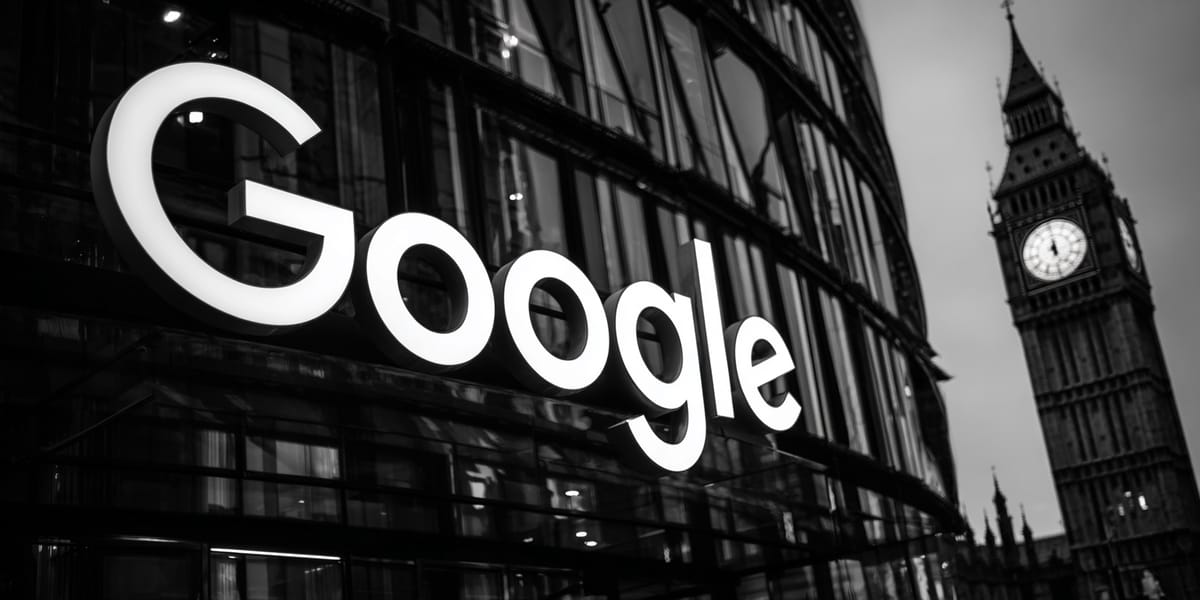UK Competition Regulator Designates Google With Strategic Market Status

The United Kingdom's Competition and Markets Authority designated Google with strategic market status on Friday for its general search and search advertising services. According to CNBC, the designation follows a nine-month investigation concluding that Google holds substantial and entrenched market power. The tech company controls more than 90 percent of searches conducted in the UK.
Will Hayter, executive director for digital markets at the CMA, confirmed the decision affects Google's search platform but excludes the Gemini AI assistant. Other AI-based search features remain within scope. The designation represents the first use of powers granted under the Digital Markets, Competition and Consumers Act 2024, which took effect in January 2025.
The CMA classification does not constitute a finding of wrongdoing. However, it positions Google for potential regulatory requirements affecting how its search operates in Britain. Consultation on specific interventions will begin later this year.
Direct Impact on Market Competition
The strategic market status creates immediate consequences for Google's business operations and competitors. Bloomberg reports the watchdog raised concerns about fairness in search results, high advertising costs, and AI-generated search responses.
The designation matters because it enables the CMA to impose conduct requirements without court proceedings. According to GOV.UK, the regime targets firms with substantial market power affecting how other businesses operate. Google's position meets this threshold given its dominant share of UK search queries.
Potential interventions outlined in June 2025 guidance include fairer search rankings and greater publisher control over content usage in AI responses. These measures could reshape how millions of UK users access information online. The designation remains active for five years before mandatory review.
Broader Industry Consequences
The UK action reflects growing international regulatory pressure on major technology platforms. The Digital Markets, Competition and Consumers Act grants the CMA authority to promote competition in fast-moving digital markets while protecting consumers and businesses from harmful practices by dominant firms.
Google's strategic market status designation arrives as the company faces scrutiny across multiple jurisdictions. The European Commission fined Google 2.95 billion euros in September 2025 for anti-competitive advertising practices. US courts ruled in 2024 that Google illegally maintained its search monopoly through exclusive agreements with device manufacturers.
The UK approach differs from retrospective enforcement actions by establishing forward-looking requirements. The regime applies only to firms meeting specific thresholds for market power and strategic significance. This proportionate framework aims to enable innovation while preventing abuse of dominant positions.
Google responded by highlighting its contribution to the British economy, including a £5 billion investment announced in September 2025 for AI development and data center construction. Oliver Bethell, senior director of competition at Google, expressed concern that proposed interventions could inhibit UK innovation and slow product launches during a period of AI advancement.
The designation sets precedent for how Britain will regulate digital markets post-implementation of new competition powers. The CMA launched separate investigations into Apple and Google mobile operations, examining whether these companies hold strategic market status for operating systems, app stores, and browsers on mobile devices.
Further Reading
For deeper insights into global adoption trends, our Alternative Financial Systems Index tracks regulatory frameworks and adoption metrics across 50 countries. The index provides data on how different jurisdictions approach digital market regulation and competition policy.




